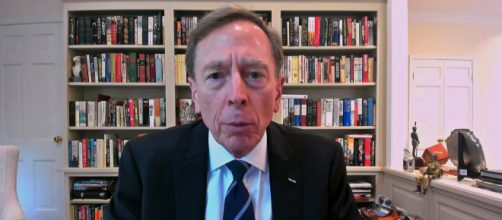Former CIA Director David Petraeus told CNN that poor Russian communications and good Ukrainian snipers had so far led to the deaths of at least four, possibly five Russian generals in the first three weeks of the War in Ukraine. On the March 20 "State of the Union" program, Petraeus said such a feat was "very, very uncommon."
Petraeus, a retired army general, explained what may have led the generals to expose themselves to sniper fire. The Ukrainians had successfully jammed communications between Russians in Ukraine, so successful that the Russians had resorted to stealing cellphones from Ukrainian civilians, he said.
Rather than take the initiative, junior officers wait for orders
In the event of an armored column being forced to stop expectedly, junior officers could not be relied upon to act decisively, Petraeus said. "There's no sense of initiative at junior levels. Instead, they wait to be told what to do," he said. Eventually, a general would grow impatient and walk to the front of the column, exposing himself to Ukraine's "very, very good snipers," he said.
Petraeus and CNN's Jake Tapper noted that only four of the five deaths reported by the Ukrainian government had been independently confirmed at that time of the broadcast. A three-star general was reported to be among the dead.
Urban warfare and starvation in Mariupol
The former CIA director said the fighting in Ukraine had come to "a bloody stalemate" and "a battle of attrition, in a sense" between the Ukrainian people and Russian President Vladimir Putin. Russian soldiers were going "building to building" in the port city of Mariupol, he said. "Every single room has to be cleared in this kind of endeavor," he added.
The inhabitants of Mariupol were under "siege" and "literally starving," Petraeus said. Once the city fell, Russian forces would be free to move towards other important targets in Ukraine.
The main difference between Ukraine and Russia is political
Writing in The New York Times on March 19, Yaroslav Hrytsak, a history professor at Ukrainian Catholic University, said Putin had mistakenly expected Ukrainians to welcome the invaders as brothers.
Linguistic, religious and cultural differences were not what set Ukraine apart from Russia; it was "political traditions," he said.
"Simply put, a victorious democratic revolution is almost impossible in Russia, whereas a viable authoritarian government is almost impossible in Ukraine," Hrytsak said. Before World War II, the historian said Western ideas about democracy had established themselves in Ukraine via Poland.
Putin saw himself fighting "not with Ukraine but with the West in Ukrainian lands," Hrytsak said. Therefore, it was essential to show the Russian leader "that Ukraine is fighting not alone but with the help of the West and as part of the West," the historian said.


